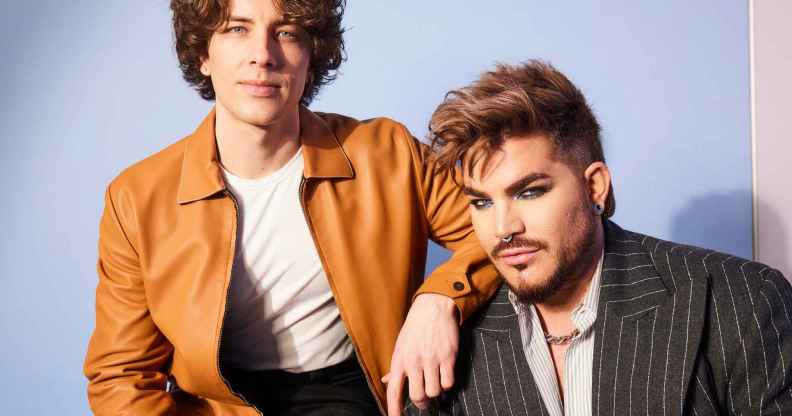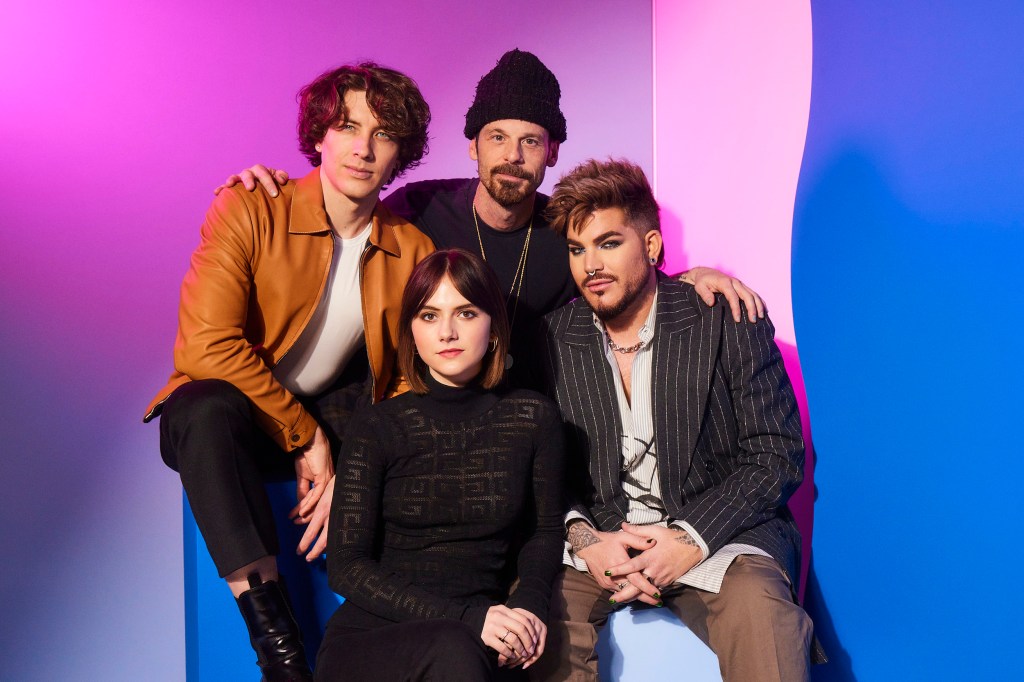Adam Lambert’s poignant new film looks back on the AIDS crisis in San Francisco

Adam Lambert stars in ‘Fairyland’ (Getty)
Sundance hit Fairyland follows a family living through a pivotal time for the LGBTQ+ community in San Francisco, and its star Adam Lambert has opened up about putting queer stories in the spotlight.
Set at the start of the AIDS crisis in ‘Frisco, the queer coming-of-age drama, which has been hailed as a tearjerker following its premiere at the Sundance Film Festival, tells the poignant story of an unconventional father raising his daughter during a historic time in the 1970s.
Fairyland is based on Alysia Abbott’s 2013 memoir Fairyland: A Memoir of My Father, and follows Alysia’s (Emilia Jones) childhood as she is raised by her father Steve (Scoot McNairy), a poet and activist who comes out as gay. She discovers a beautiful world of artists and writers, but also the effects of the AIDS crisis when people around her contract the virus to which her father also falls victim.

The film, which also stars Cody Fern, Geena Davis and Queen frontman Adam Lambert – as Steve’s boyfriend Charlie – looks set to add nuance to onscreen depictions of the LGBTQ+ community, something that convinced Lambert to take part in the project.
“I read [the memoir] and I thought it was beautiful,” he told Collider. I’ve always loved San Francisco in the 70s, particularly the Castro [and] the gay liberation movement. My mom’s side of the family lived in the Castro during that time. It hits home for me. That was a very nostalgic era based on stories I’ve heard.”
“But [Fairyland] in particular was just so interesting because you’re colliding the gay lib movement with a single father raising a child. I thought it was so interesting to see those things mash together in such a beautiful way.”
Reflecting on the haunting legacy of the AIDS crisis, Lambert said that “queer stories and visibility are more important than ever” right now.
“I missed that era by 10 years or so, but growing up in the shadow of it, the aftermath of it, the fear that was around sex and homosexuality permeated the 90s. I was a kid but you could feel it. [In] anything you saw on TV about anything gay, everyone was freaked out because of what had happened.”
Lambert, who has been vocal recently about whether gay characters should be played by heterosexual actors, added that a great deal of queer history has been lost over time – another reason why films such as Fairyland are so important.
FAIRYLAND broke my heart then put it back together again. 4 stars, and highly recommend. pic.twitter.com/vJenq2SUV5
— josh korngut @ sundance ‘23 (@joshkorngut) January 26, 2023
“The LGBTQ community today, especially young people coming up, there’s a lot of the history that we haven’t passed on to our community… A lot of our teachers were taken away from us. A lot of the people [who] would now be our elders don’t exist any more.”
Lambert separately told Deadline that the film serves as a sobering reminder that the hard-won rights of LGBTQ+ people are under threat.
“The community is basically under attack again in the United States, and there [are] a lot of parallels to the time that we’re exploring in the [film],” he said. “We don’t live in full harmony yet, even though we’re trying.
“When I saw the film, one of the things I realised was, what a beautiful piece for anybody out there that doubts that a gay person can be a parent, anybody that doubts that gay people go through the same things as they do. I mean, it’s a real beautiful exploration of that, and showing that the daughter ends up being a wonderful, complex, smart, healthy woman, and she’s OK. I think that’s a really nice thing to walk away from with this story.”
Fairyland premiered at the Sundance Film Festival and is currently seeking distribution.

